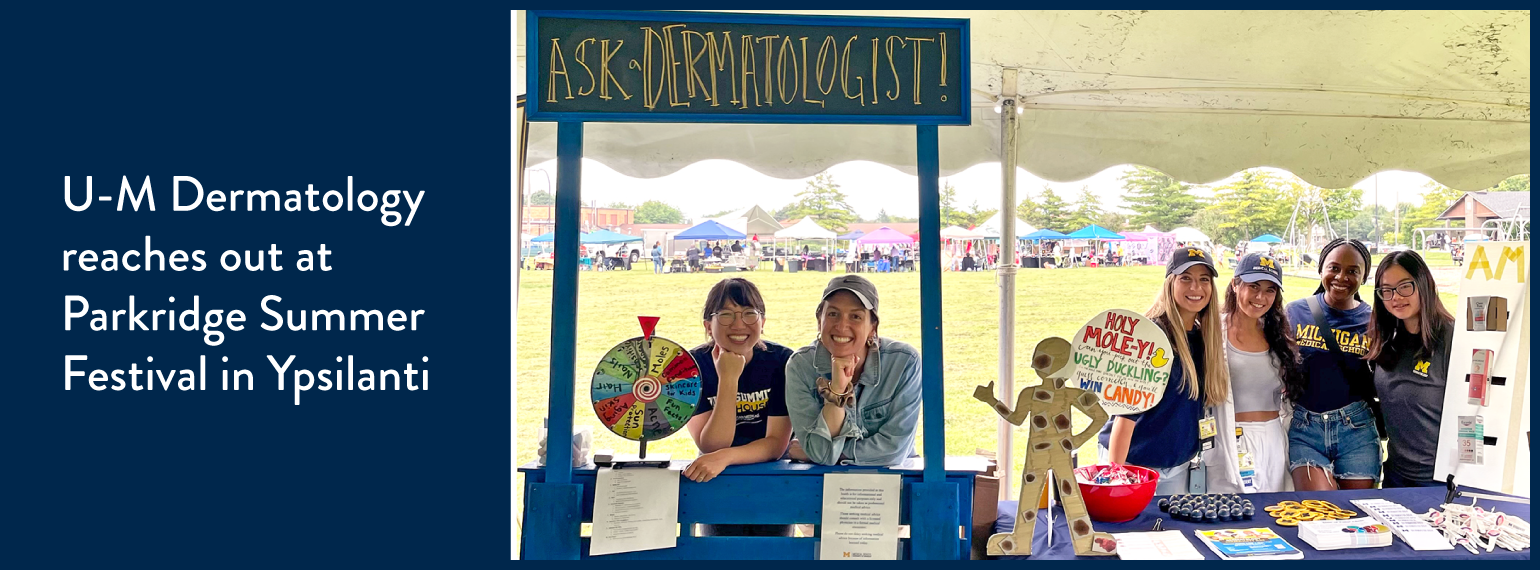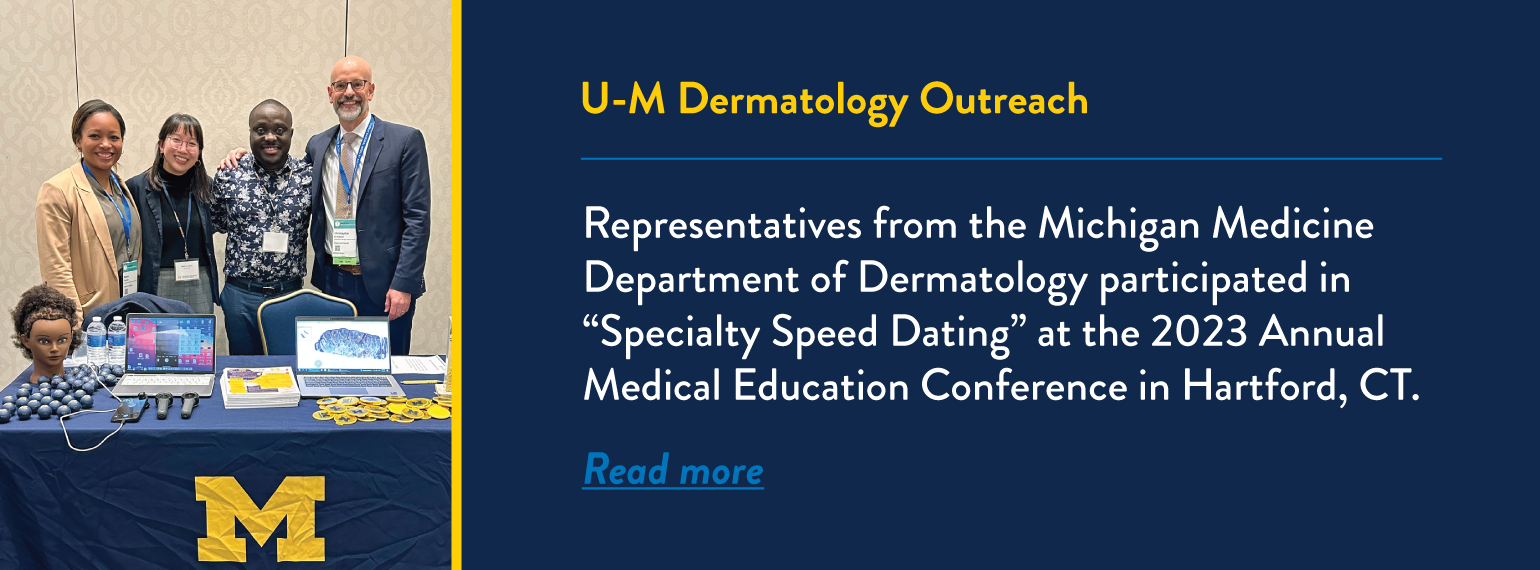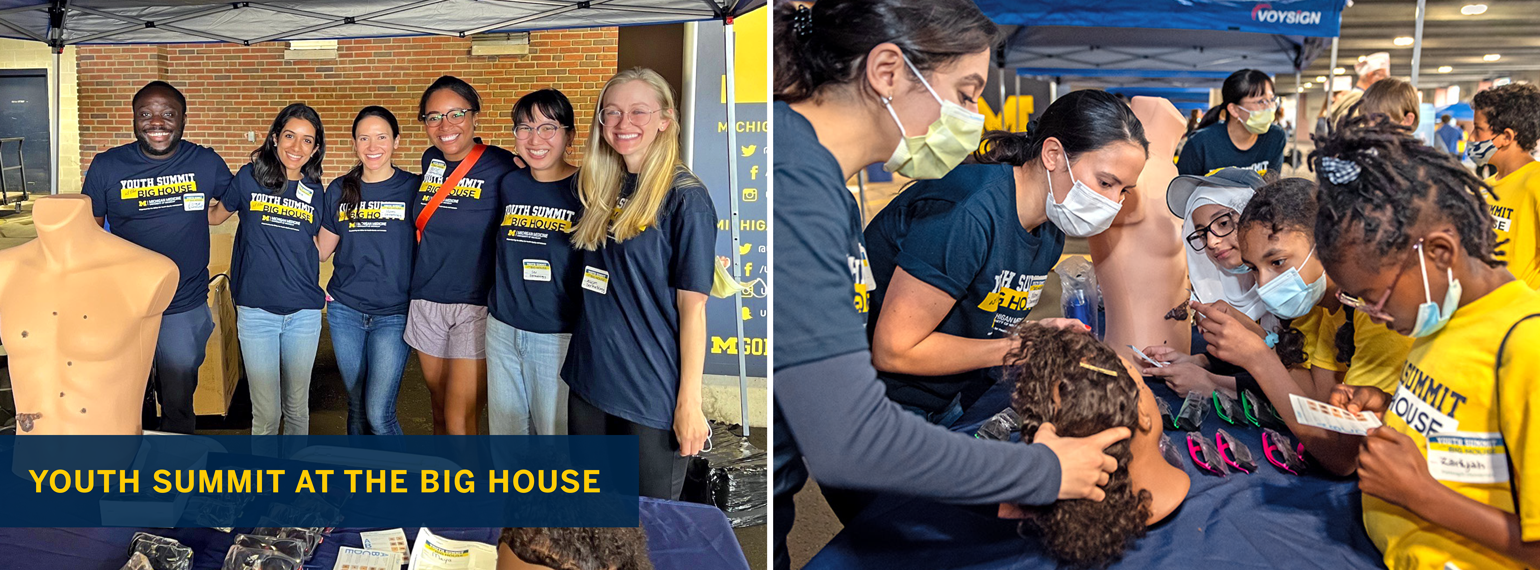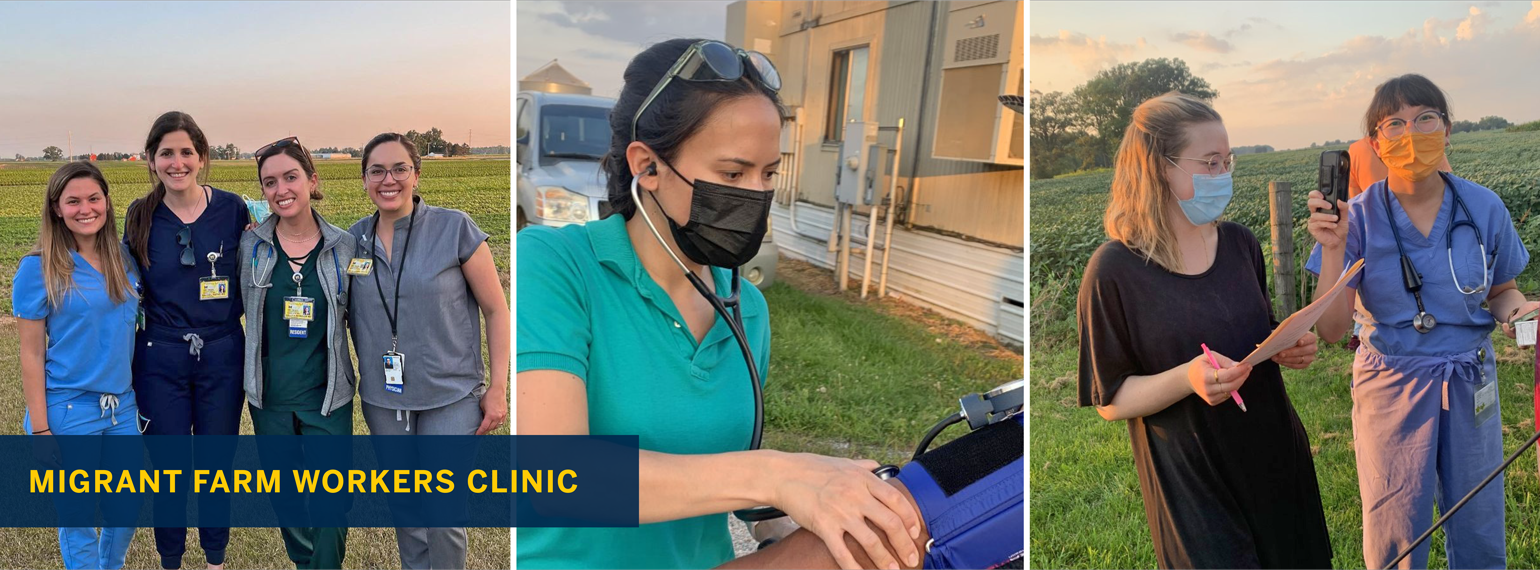DEI themes are woven throughout the Dermatology residency curriculum. Our resident didactic curriculum features faculty and guest lectures on DEI topics. Faculty and residents also participate in our quarterly DEI Discussions (formerly known as our Anti-Racism Book Club), which support discourse on DEI and Anti-Racism in medicine and dermatology.
We emphasize inclusion of skin of color images in all lectures. Faculty give specialized lectures on skin of color dermatology, including Skin of Color Kodachromes and lectures on topics of health disparities in dermatology.
Each year, our department hosts a leading dermatologist as our Reverend Dr. Martin Luther King, Jr. (MLK) Visiting Professor. MLK Visiting Professors provide lectures on topics of health equity, skin of color, and other DEI work in dermatology.
In addition to the above, frequent content review for opportunities to be more inclusive and for new DEI-related content is prioritized and welcomed.
- 2023 - Ginette Okeye, MD, Professor and Chair of Dermatology, Howard University College of Medicine: "URM Faculty" and "Follicular Disorders in Men"
- 2022 - Jenna C. Lester, MD, Assistant Professor of Dermatology, University of California San Francisco School of Medicine: "Beyond the Diagnosis"
- 2021 - Susan C. Taylor, MD, Sandra J. Lazarus Associate Professor of Dermatology, University of Pennsylvania Perelman School of Medicine: “How to Approach Hair and Scalp Disorders in Skin of Color Patients” & “Research: A Tool for Mentorship and Sponsorship of UIM Medical Students”
- 2020 - Nada Elbuluk, MD, MSc, Clinical Associate Professor of Dermatology, Keck School of Medicine of University of Southern California: “Diversity in Dermatology: Our Past, Present, and Future”
- 2019 - Sandy Tsao, MD, Assistant Professor of Dermatology, Harvard Medical School: “Fifty Shades of Brown – Science, Symptoms and Strategies for Acquired Pigmented Disorders”
- 2018 - Amy McMichael, MD, Professor and Chair of Dermatology, Wake Forest School of Medicine: “Updates in Hair Loss”
- 2017 - Luis Diaz, MD, C.E. Wheeler Jr. Distinguished Professor, University of North Carolina School of Medicine: “Milestones in Bullous Pemphigoid”
- Spring 2023 – Excerpts from “Disability Visibility”, edited by Alice Wong
- Winter 2023 – Curbsiders Podcast: “LGBT health in primary care”
- Summer 2023- Montenegro, “My name is not Interpreter”, JAMA 2016
- Spring 2022 and Spring 2023- Training in responding to Patient-Initiated Harassment, hosted by Drs. Fraley, Sheffield, and Houchens in the Department of Internal Medicine
- Winter 2022 – “70 Acres in Chicago: A Documentary Film about Cabrini Green”
- Fall 2021 - Ware et al, "Racial Limitations of Fitzpatrick Skin Type", Cutis 2020
- Summer 2021 - Still Processing Podcast: "Asian Americans Talk about Racism, and We Listen - Part 1"
- Spring 2021 - "Caste: The Origins of our Discontents" by Isabel Wilkerson
- Winter 2020 - “Acres of Skin: Medical Abuse Behind Bars" by Allen Hornblum
- Fall 2020 - "Between the World and Me" by Ta-Nehisi Coates
- Summer 2020 - "How to be An Anti-Racist" by Ibram X. Kendi





